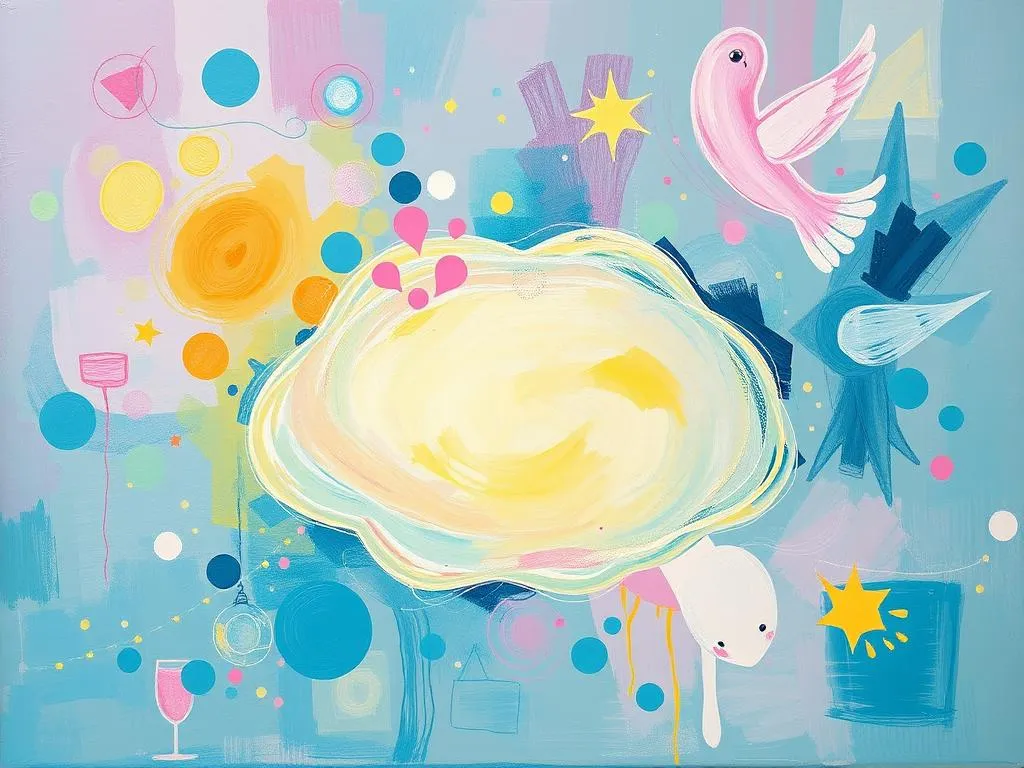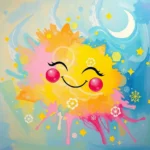
Have you ever woken up from a dream, heart racing, and thought, “What on earth was that all about?” Dreams can feel like enigmatic puzzles, each symbol laden with meaning, beckoning us to explore the depths of our subconscious. They serve as a portal to our inner world, revealing hidden desires, fears, and truths we might not confront in our waking lives. It’s as if our mind is speaking to us in a language only we can begin to decipher.
In this exploration of dream symbolism, we’ll peel back the layers of meaning behind common symbols, delve into real-life experiences that illuminate their significance, and finally, reflect on how understanding these messages can catalyze personal growth. So, let’s embark on this journey together and unlock the messages our dreams have to share.
Whispering Shadows: The Language of Symbols
Dreams are rich tapestries woven from the fabric of our experiences, emotions, and cultural narratives. Each symbol carries its own weight of meaning, often influenced by our personal history and broader cultural contexts. For instance, animals frequently appear in dreams, serving as powerful symbols. A lion might embody courage or leadership, while a snake could evoke feelings of fear or transformation. The key lies in our personal relationship with these symbols.
Similarly, water often emerges as a significant motif in dreams. It represents the emotions we navigate in our waking life. Calm waters might suggest peace and clarity, while turbulent seas can signify chaos or emotional upheaval. In many cultures, water is synonymous with purification and rebirth, urging us to explore how our feelings shape our reality.
Another common symbol is flight. Dreaming of flying often denotes a desire for freedom or an escape from constraints. It suggests a yearning to rise above challenges, while a crash landing might reflect insecurities or fears of failure. In psychological terms, flight can symbolize ambition and the pursuit of goals, pushing us to assess where we feel grounded or ungrounded in our lives.
Keys are also prevalent symbols in dreams, representing knowledge, opportunity, or access. Losing a key can indicate feelings of being locked out of opportunities or aspects of ourselves, while finding a key might suggest that you are unlocking new potentials or insights. The context of the dream and your feelings around the key will provide crucial clues to its interpretation.
Lastly, consider houses. Each room in a house can symbolize different aspects of your psyche or life experiences. A well-kept room may signify a healthy aspect of your life, while an attic filled with clutter might reflect repressed memories or unresolved issues. By examining what each room represents to you, you can gain insight into your emotional landscape.
Dreamscapes Unveiled: Tales from the Subconscious
Let’s dive into some specific scenarios that illustrate how these symbols manifest in dreams and what they might reveal about our lives.
Scenario 1: The Drowning Dream
You find yourself submerged in water, struggling to breathe. The sensation of panic washes over you. This dream may signify feelings of being overwhelmed in your waking life—perhaps by responsibilities or emotions. The act of drowning can symbolize a fear of losing control. Reflect on areas where you might need support or where you feel submerged by your obligations.
Scenario 2: The Chase
In this dream, you’re being chased by an unknown figure. Your heart pounds as you run, but no matter how fast you go, they are always right behind you. This scenario often represents avoidance of something in your waking life—perhaps a fear, a task, or an unresolved conflict. Consider what or who you might be avoiding. Understanding this can help you confront the issue head-on.
Scenario 3: The Broken Mirror
You stand in front of a shattered mirror, fragments reflecting distorted images of yourself. This dream could indicate feelings of inadequacy or self-doubt. The mirror symbolizes self-perception, and its shattering may suggest that you feel fragmented or disconnected from your true self. It’s a prompt to explore your self-esteem and the narratives you tell yourself.
Scenario 4: The Unfinished House
You wander through a house that feels familiar yet incomplete. Doors lead to rooms that are half-finished or empty. This dream might reflect feelings of transition or uncertainty in your life. The unfinished house symbolizes aspects of your identity that you are still developing. Embrace this phase as a time for growth and exploration.
Scenario 5: The Flying Dream
You soar above the landscape, feeling liberated and powerful. This uplifting dream often indicates a sense of accomplishment or freedom. It suggests you are overcoming obstacles and gaining perspective on challenges. Reflect on areas of your life where you feel empowered, and consider how you can cultivate that feeling further.
Awakening the Soul: The Journey of Personal Growth
Understanding the symbols in our dreams opens the door to profound personal growth. Each dream serves as a mirror, reflecting our inner world and prompting us to explore our thoughts, emotions, and beliefs. By acknowledging these symbols and the feelings they evoke, we can embark on a journey of self-discovery and healing.
Start by keeping a dream journal. Write down your dreams as soon as you wake up, capturing the symbols and emotions that stood out to you. Over time, you’ll begin to recognize patterns and recurring themes that can guide you toward deeper understanding. This practice not only helps you remember your dreams but also encourages you to engage with them actively.
Consider integrating mindfulness practices into your daily routine. By cultivating awareness in your waking life, you can enhance your ability to connect with your dreams. Techniques such as meditation or visualization can help you tap into your subconscious, making it easier to interpret the messages your dreams convey.
Additionally, exploration of cultural symbolism can enrich your understanding of your dreams. Different cultures interpret symbols uniquely, and learning about these interpretations can provide fresh perspectives. For example, in some cultures, snakes symbolize healing and transformation, while in others, they may evoke fear. Reflecting on how your cultural background shapes your dreams can lead to deeper insights.
Lastly, don’t hesitate to seek support. Discussing your dreams with a trusted friend or therapist can provide valuable insights. They may offer perspectives you hadn’t considered, helping you untangle the threads of meaning woven into your dreams.
As you continue this journey, remember that your dreams are not just random occurrences; they are conversations with your subconscious. They offer a pathway to understanding yourself on a deeper level. By embracing the messages within, you can foster personal growth, enhance your emotional well-being, and cultivate a richer understanding of your life’s journey.
In conclusion, the next time you awaken from a vivid dream, take a moment to reflect on the symbols and feelings that linger. What does your subconscious want you to know? The answers may be just a dream away, waiting for you to unlock their hidden wisdom. Embrace the journey, and let your dreams guide you toward self-discovery and transformation.







